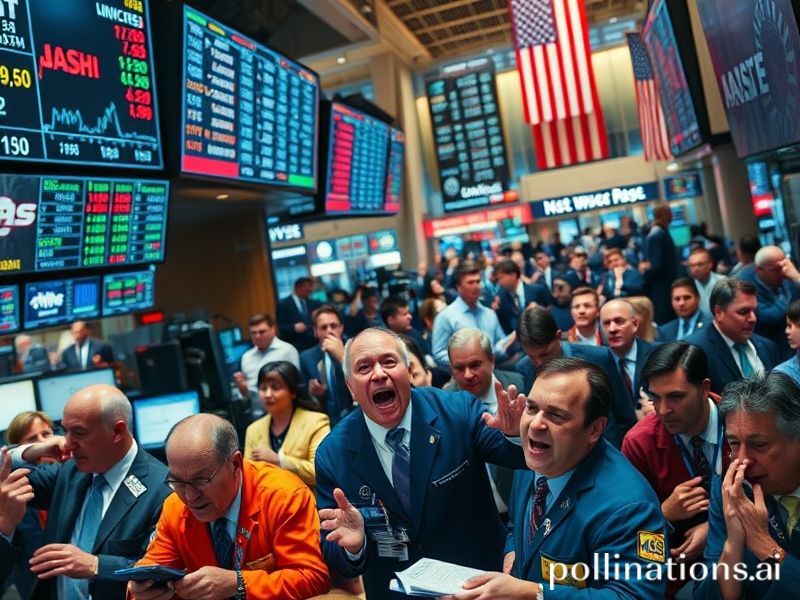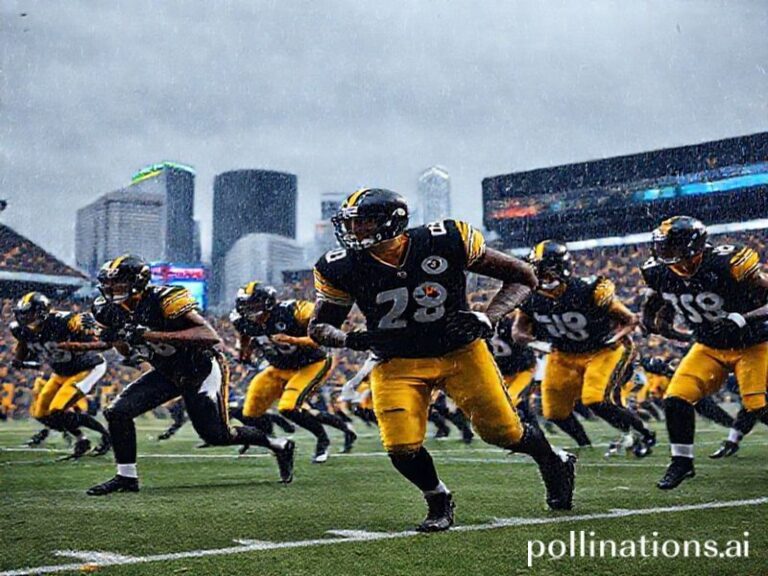MarketWatch Mania: Why the Stock Market Is the New TikTok Trend
# **MarketWatch: Why the World is Glued to the Stock Market Like a TikTok Scroll**
In the age of instant gratification, where memes go viral faster than you can say “Rickroll,” there’s a new kid on the block that’s got everyone’s attention: **MarketWatch**. No, it’s not the latest dance craze or a new Netflix series—it’s the stock market, and it’s trending harder than a #ForYouPage algorithm.
### **Why Is MarketWatch Everywhere?**
If you’ve been on the internet lately, you’ve probably seen it: **stock market memes, Reddit threads dissecting the latest market moves, and even your grandma asking you to explain “shorting” at the dinner table**. But why the sudden obsession? Well, it’s a perfect storm of factors:
1. **The Rise of the Retail Investor**: Thanks to apps like Robinhood and Webull, anyone with a smartphone and a spare $5 can now play the market. Suddenly, your barista is a day trader, and your cousin’s dog has a brokerage account (okay, maybe not the dog, but you get the idea).
2. **Meme Stocks & the Power of the Hive Mind**: Remember when GameStop (GME) became the ultimate underdog story, thanks to a ragtag group of Reddit users? It was like the stock market version of “Rocky,” but with more shorts and fewer training montages. This showed the world that the little guy could shake up Wall Street—and that was *chef’s kiss* for internet culture.
3. **Economic Uncertainty & FOMO**: With inflation, recessions, and crypto crashes making headlines, people are glued to MarketWatch to see if their investments are about to tank or take off. And let’s be real—nothing gets people talking like the fear of missing out (FOMO) on the next big thing.
4. **Social Media & Viral Finance Trends**: TikTok, Twitter, and Reddit have turned finance into entertainment. Who needs reality TV when you’ve got r/WallStreetBets and traders live-tweeting their wins (and losses)?
### **Cultural Context: From Wall Street to Main Street**
The stock market used to be the domain of suits and boardrooms, but now it’s as mainstream as a TikTok trend. Here’s why that matters:
– **Democratization of Finance**: Apps and platforms have made investing accessible to everyone, not just the wealthy. This is huge for financial literacy and inclusion.
– **The Rise of the “Degenerate” Trader**: Thanks to meme stocks and viral trends, trading has taken on a new, rebellious edge. It’s not just about making money—it’s about sticking it to the man (or at least trying to).
– **The Blurring of Lines Between Finance & Pop Culture**: Stocks are now part of the cultural conversation, from Elon Musk’s tweets moving markets to celebrities endorsing crypto.
### **Social Impact: Good, Bad, and Ugly**
With great power comes great responsibility—or at least, great memes. The rise of MarketWatch has had some interesting side effects:
– **The Good**: More people are engaging with their finances, which can lead to better financial habits and long-term wealth building.
– **The Bad**: Day trading can be risky, and not everyone is cut out to be the next Warren Buffett. Some people are bound to get burned.
– **The Ugly**: The market can be manipulated, and not everyone plays fair. From pump-and-dump schemes to insider trading, the wild west of trading has its dark side.
### **Why This Matters**
MarketWatch isn’t just a trend—it’s a cultural shift. It’s a sign that finance is no longer just for the elite; it’s for everyone with a Wi-Fi connection and a little bit of courage. Whether you’re a seasoned investor or just dipping your toes into the market, one thing is clear: the stock market is now part of the global conversation, and it’s here to stay.
So, next time you see a MarketWatch headline, don’t scroll past it—dive in. Who knows? You might just catch the next big trend before it goes viral.
—







